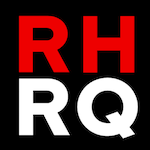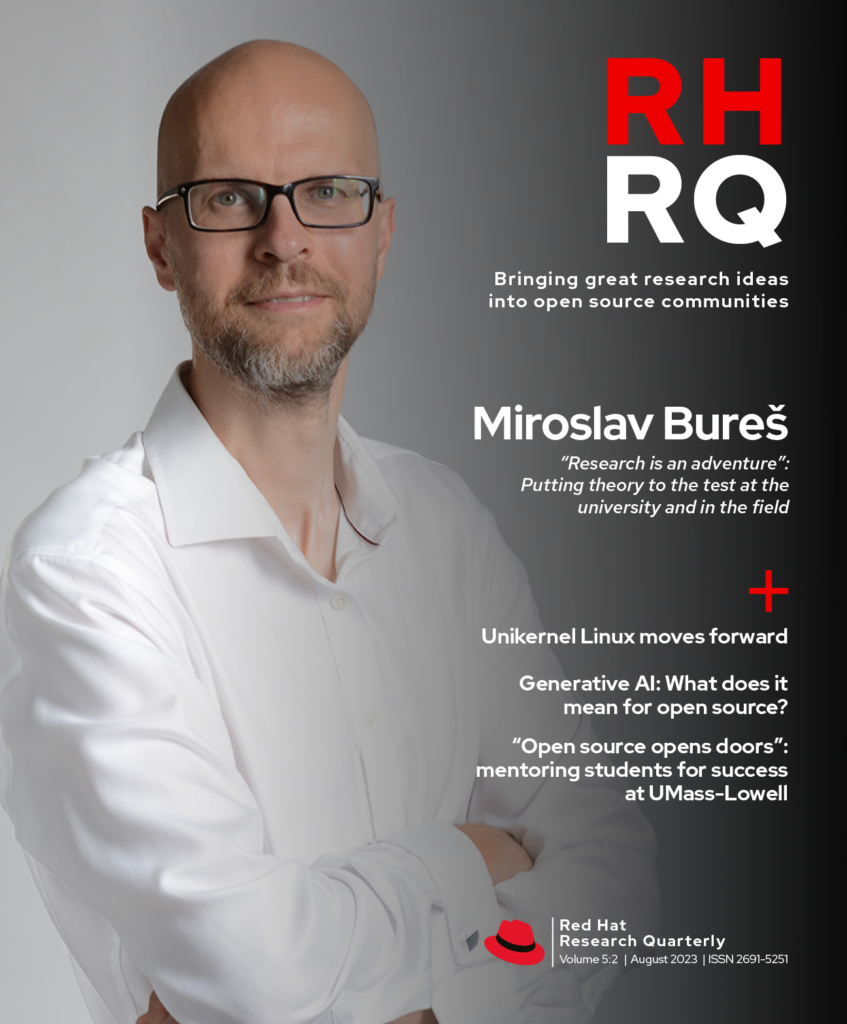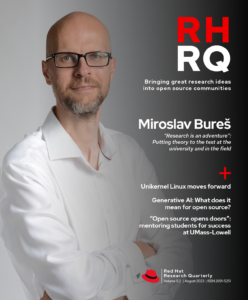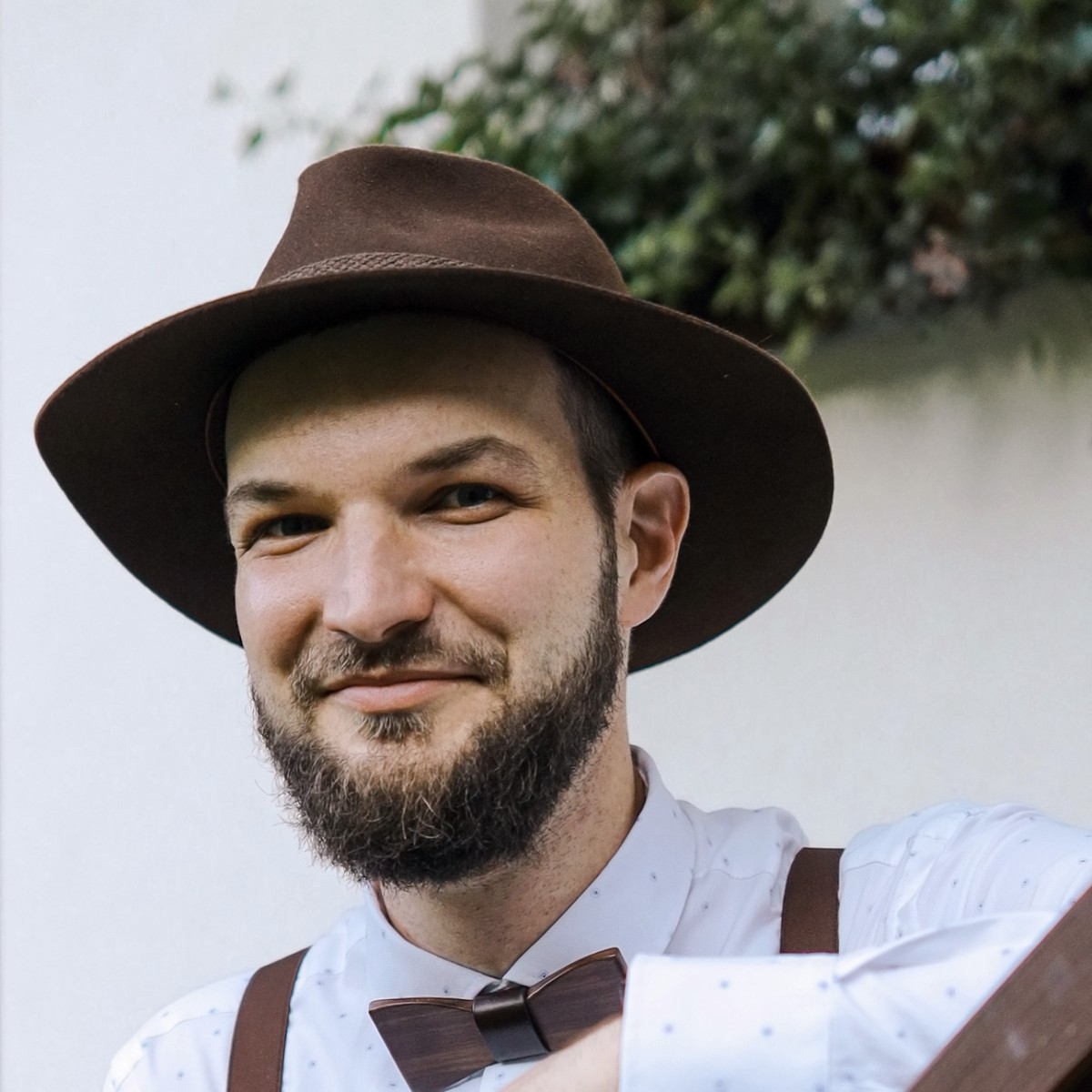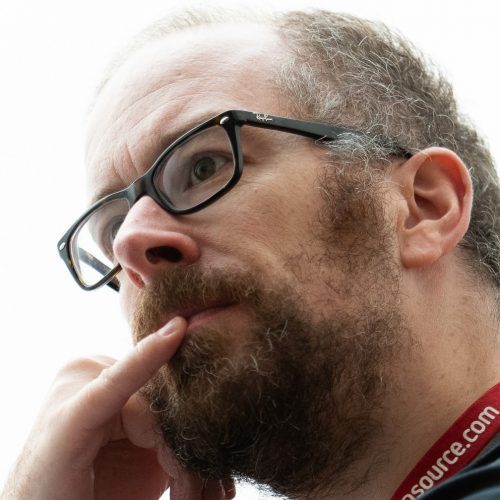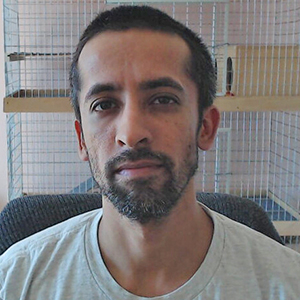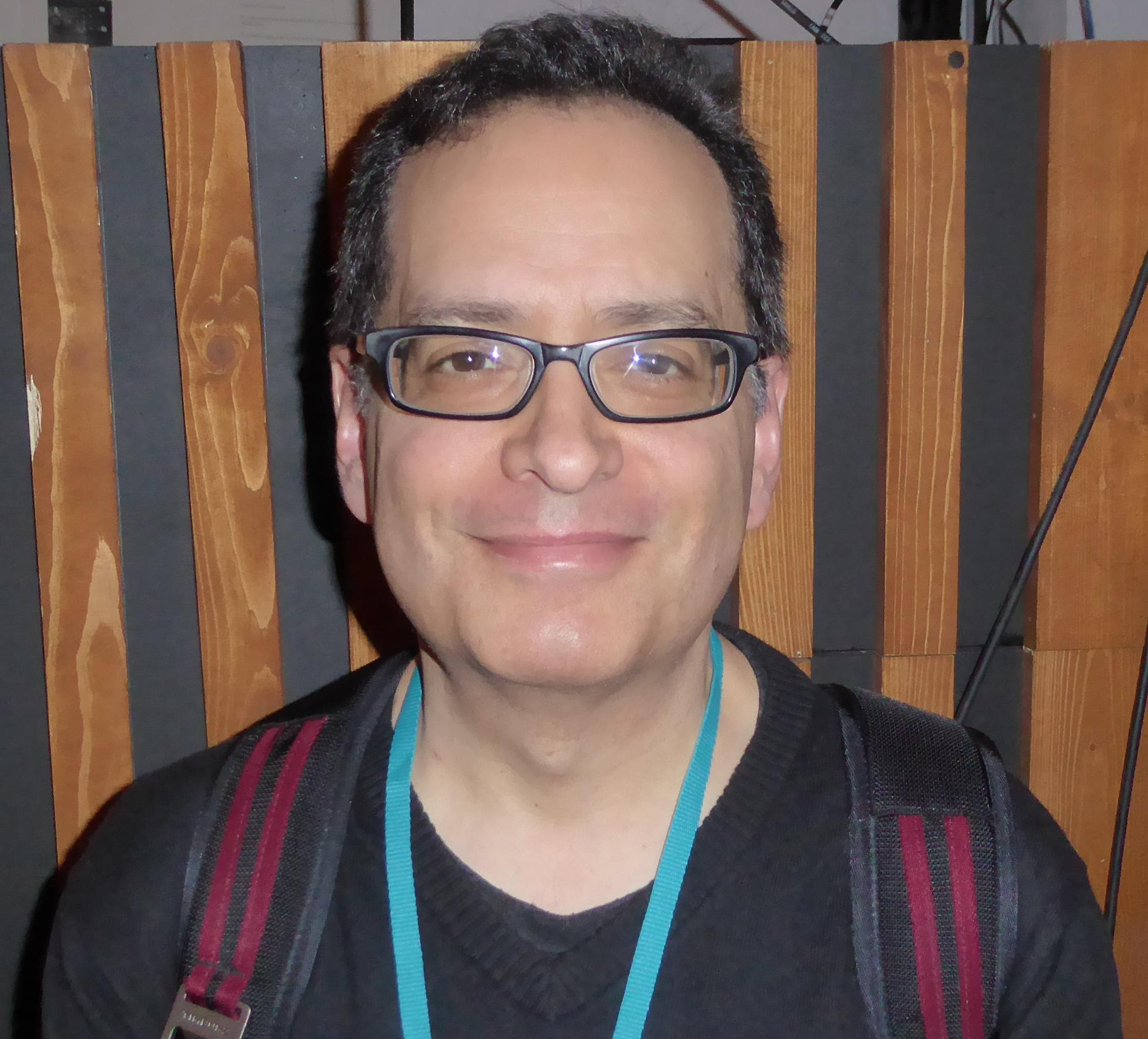After more than three years of strictly virtual meetings, DevConf.CZ has finally returned to in-person events. The Brno-based hybrid gathering is an annual, free, Red Hat sponsored community conference for developers, admins, DevOps engineers, testers, documentation writers, and other contributors to open source technologies.
Presentations highlighted progress made via industry-university collaboration in areas critical to future technology development, including hybrid cloud, edge computing, and security. More information on these projects, including contacts, opportunities to contribute, and access to slides, publications, repositories, and other artifacts, can be found on the Red Hat Research website. Recordings of most presentations at DevConf.CZ can be found on YouTube in the DevConf.CZ 2023 playlist.
Hybrid cloud
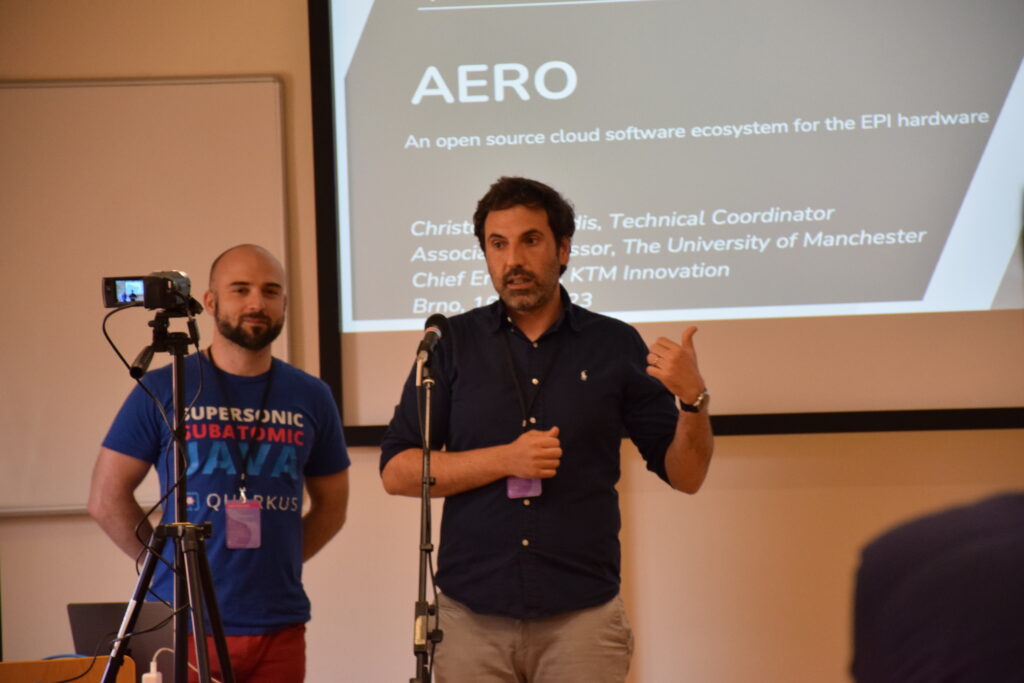
Optimizing Java on the EU processor platform, Christos Kotselidis (University of Manchester, UK; KTM Innovation) and Karm Michal Babacek (Red Hat)
This talk derives from the recently launched Accelerated EuRopean clOud (AERO) project. The University of Manchester and Red Hat are two of 12 consortium members participating in this EU-funded effort toward European sovereignty in the chip design and computer infrastructure industry. The presentation demonstrated two key components of the software stack regarding the Java ecosystem (video):
- Quarkus from Red Hat, a Kubernetes Native Java stack tailored for OpenJDK HotSpot and GraalVM’s native-image (slides)
- TornadoVM from the University of Manchester, a JVM plugin for accelerating Java programs on GPUs and FPGAs (slides)
Design and deployment of FaaS apps at the edge-cloud, Yiannis Georgiou (CTO, Ryax Technologies)
PHYSICS is an EU-supported research project with the goal of unlocking the Function-as-a-Service (FaaS) paradigm for cloud service providers and application developers. Georgiou’s talk focused on a design and development environment from the PHYSICS project aiming to ease application evolution to the new FaaS model. It uses the Node-RED open source tool as the primary function and workflow runtime to enable a more user-friendly and abstract function- and workflow-creation process for complex FaaS applications. To this end, it provides an extendable, pattern-enriched palette of ready-made, reusable functionalities such as workload parallelization, data collection at the edge, and function orchestration creation, among others. The environment embeds seamless DevOps processes for generating the deployable artifacts of the FaaS platform (Openwhisk). Annotation mechanisms are also available for the developer to dictate diverse execution options toward the deployment stacks, including sizing and locality considerations, as well as abilities for dynamic FaaS applications to continuously leverage the edge-cloud continuum. (video)
Writing a K8s Operator for Knative functions, Luis Tomas Bolivar (Red Hat) and Jose Castillo Lema (Red Hat)
This well-attended workshop offered a hands-on opportunity to work with ideas and tools developed by PHYSICS project researchers for serverless and FaaS environments. One of the most relevant upstream projects for serverless is Knative, which recently added support for creating, building, and deploying functions on top of K8s clusters. Workshop participants implemented a K8s Operator, using the operatorsdk framework, to provide the functionality of the Knative CLI. (slides)
Trust
Cybersecurity in the post-quantum era, Lukas Malina (Brno University of Technology, CZ)
This talk briefly introduced post-quantum cryptography and discussed the following issues: How do emerging quantum computers jeopardize current ICT security protocols (e.g., TLS, SSH, IPSec)? How long can we use existing asymmetric schemes such as RSA, ECDSA, or ECDH? Which quantum-resistant cryptography protocols are recommended by security authorities (e.g., NIST, NSA, BSI)? How shall we establish keys, encrypt data, and digitally sign messages after 2025? Are current security libraries ready for the post-quantum era? The talk reflects research done as a part of the Cybersecurity Excellence Hub in Estonia and South Moravia (CHESS), a 12-member consortium of universities, businesses, and government agencies addressing critical challenges in six areas: the internet of secure things, security certification, verification of trustworthy software, blockchain, post-quantum cryptography, and human-centric aspects of cybersecurity. (video)
Trust management in digital ecosystems, Dávid Halász (PhD Student, Masaryk University, CZ, Red Hat; Dávid spoke in place of Barbora Buhnova, who could not appear due to injury.)
Digitalization is leading us toward ecosystems where systems, processes, data, and things are not only interacting with each other but might start forming societies on their own (e.g., forming the Social Internet of Things). In these digital ecosystems, trust management on the level of system-to-system or thing-to-thing interaction becomes an essential ingredient to supervise the safe and secure progress of our digitalized future. This future-focused presentation, also stemming from CHESS, explored the essential elements that need to be considered for proper trust management in complex digital ecosystems and how trust-building can be leveraged to support people in safe interaction with other autonomous digital agents (e.g., self-driving cars, drones, and other robotic systems). (slides) (video)
User authentication in public open source repositories, Agata Kružíková (PhD student, Masaryk University, CZ)
Kružíková maintained a booth where DevConf attendees could participate in her research project “Authentication in public open source repositories,” which focuses on user behaviors.
University connections
Teaching at the university: lessons learned.
Red Hat Panelists Alexandra Nikandrova (Technical Writer), Tomas Tomecek (Sr. Principal Software Engineer), Maria Svirikova (Interaction Designer), Sarka Jana Janderkova (Technical Writer), and Dávid Halász (Principal Software Engineer) shared their stories about introducing open source technologies and processes with university students. The discussion addressed challenges and opportunities that come with educating students on these topics, tips for effectively preparing for classes, the impact of this journey on the larger community and industry, and the benefits of open source technologies in shaping the future of education. The conversation offered valuable insights for anyone interested in open source technologies and how to share their knowledge. (video)
Success
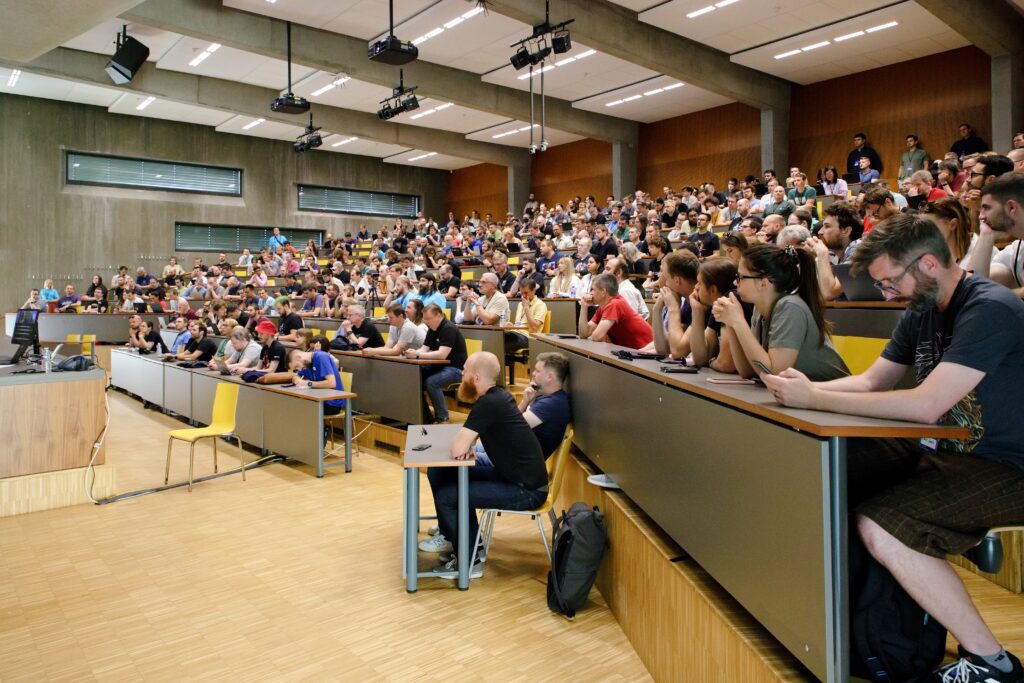
DevConf.CZ 2023 witnessed an impressive turnout with over 1,100 in-person attendees and more than 5,000 views on live streams. The majority of attendees were from the Czech Republic, with participants from the United States, Germany, Austria, Slovakia, Serbia, Poland, and other countries. The conference featured an incredible lineup of speakers, with over 290 presenters delivering diverse sessions, including a keynote, talks, lightning talks, workshops, meetups, and activities.
Joel Savitz, a Red Hat software engineer based in Boston, described his experience:
“DevConf.CZ was an exciting conference: I met interesting developers from around the world, including people I’d only seen in meetings or emails. Hearing in-person talks on topics like secure supply chains and AI applications helped me understand projects and concepts much more quickly than if I were just reading documentation. Conferences like this help improve subsequent online interactions and strengthen open source communities.“
-Joel Savitz, Red Hat
Planning for DevConf.CZ 2024 is underway—stay tuned for announcements later this year!
